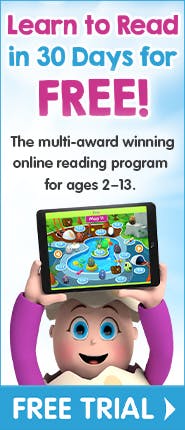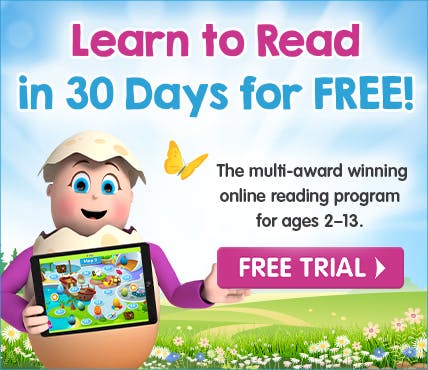


What is Reading Fluency?

Fluent readers are no longer 'decoding' each word they encounter. They have developed the knowledge and skills to recognise words automatically, accurately and quickly.
Reading fluency is the link between recognising words and understanding them. Effective reading programs teach fluency skills so that readers can make the link between words, sounds, and meaning more quickly.
Fluent readers
Fluent readers are no longer 'decoding' each word they encounter. They have developed the knowledge and skills to recognise words automatically, accurately and quickly. This means that the reader can focus on the higher-order reading goals.
For a fluent reader, "multiple tasks are being performed at the same time, such as decoding the words, comprehending the information, relating the information to prior knowledge of the subject matter, making inferences, and evaluating the information's usefulness to a report he or she is writing" (see footnote i).
People who are not fluent readers spend a lot of mental energy on decoding text, recognising individual words, and then trying to string them together for meaning. In complex texts, fluency is required to be able to comprehend the subject matter, not just read the words. As reading is still the main mode of transmitting new information in a majority of educational environments, reading fluency is important for learning in all subjects.
Deep dive: What age should a child read fluently?
Teaching fluency
Reading ability is built upon the "integration of all the following skills via explicit instruction in: phonemic awareness, phonics, fluency, vocabulary knowledge, and text comprehension" (see footnote ii). Fluency and comprehension require automaticity in phonic decoding and word recognition skills, and a working knowledge of vocabulary, grammar and text construction.
Explicit instruction is how we learn these skills but it is practice, practice, practice which creates the automaticity we require for fluency. And that means a lot of reading practice.
"There are few ideas more widely accepted than that reading is learned through reading" (see footnote iii).
Support children in their reading lessons, at school, in homework or online. Help them understand how English is put together. Assist them in learning sight words, spelling lists and new vocabulary. Celebrate their achievements in language learning. Encourage them to keep reading.
Guided reading
Make time for guided reading. This is where the child reads out loud to an adult who is actively listening and helping the child improve their reading skills. Reading aloud benefits fluency as the reader needs to be able to present the text with proper oral expression, which requires comprehension of the text.
The guiding adult could offer strategies to help with problematic words, such as thinking about context, sounding out, relating the word to similar ones in meaning, spelling and/or form and correcting pronunciation that may be misleading them. Discuss how the English language is put together, the rules and inevitable exceptions.
At the end of a text they should foster conversation to see if the child has comprehended what they read. Encourage them to relate the story or information in their own words, or ask specific questions about the text. Reread parts of the text they didn't comprehend, or which the two of you disagree on. Try to see their viewpoint, and remember it's ok to agree to disagree.
Guided reading has been proven to be an effective strategy in helping to build fluency. The National Reading Panel in the US came to the conclusion that guided oral reading procedures had "a consistent, and positive impact on word recognition, fluency, and comprehension as measured by a variety of test instruments and at a range of grade levels" (see footnote iv).
Wide reading
The other main strategy which is relatively simple to implement in terms of developing fluency is wide reading. This involves reading a broad variety of texts, reading often, and reading for pleasure as well as for information. Eminent reading researcher Melanie Kuhn has said, "learners must develop automatic word recognition through the extensive reading of connected text… rather than simply developing the ability to recognise words in isolation" (see footnote v).
In Kuhn's study of fluency instruction, she found that, in a comparison of an oral repeated reading strategy and a wide reading strategy, "the wide reading group showed greater growth in terms of comprehension" (see footnote vi). Her ultimate conclusion was that both strategies are beneficial – both encouraged plenty of reading practice, building fluency.
The National Reading Panel in the US also looked at wide reading and its effect on fluency. While they did find that there has not been enough direct research into this strategy as yet, "the correlational evidence is overwhelming. There are literally hundreds of studies that find that the best readers read the most and that poor readers read the least" (see footnote vii).
Reading a variety of texts that are at the correct level for the student helps develop reading fluency. This can be done at school, at home, in the library, or using online resources. Most classrooms and families can make time to follow the NRP determination that "lots of silent reading would provide students with valuable practice that would enhance fluency and, ultimately, comprehension" (see footnote viii).
Using ABC Reading Eggs to build reading fluency
The ABC Reading Eggs program uses a number of strategies to increase reading fluency. This online program can be accessed through a computer or tablet. It is a structured learn‑to‑read program that offers personalised instruction in an engaging manner at your child's level.
The ABC Reading Eggs program provides a series of lessons using explicit teaching to build skills in phonic decoding. Many of the activities also aim to build an increasing bank of high‑frequency sight words. These are essential skills needed to develop fluency in reading.
The lessons present phonological skills and word recognition in the context of connected text as well as individual word recognition. Using focus words in sentences and short stories, for both reading and construction of text, creates a sense of meaning in students' understanding of language.
The ABC Reading Eggs program models fluent reading and encourages repeat reading of texts. It has a library of over 4000 levelled books to provide wide reading material for any level of recreational reader. Each book can be read multiple times, encouraging fluency in that text. The library books end with a quiz, which requires reading comprehension.
ABC Reading Eggs rewards students at every step, with congratulatory sounds and messages, with eggs and points and cards to be collected, with critters to earn, and certificates to be printed. Your child will build confidence in their reading fluency as they progress through the program.
See how ABC Reading Eggs works
We offer parents a free 30-day trial to see how ABC Reading Eggs works for their child.
It only takes a few minutes to get started.
Try ABC Reading Eggs here to see how your child's reading and comprehension skills can improve in just weeks.
ABC Reading Eggs testimonials
“ABC Reading Eggs is simply amazing […] My kids simply loved it. Within two months my son is reading fluently (just started Year 2), and the younger one, who is in Kindergarten, is reading three‑ to four‑letter words already.”
– Umm B.
“ABC Reading Eggs has been a terrific addition to our homeschool. Each of my three kids aged 3, 5 and 7 beg me to let them play and I think that is how ABC Reading Eggs really differs from the others; it is not a chore for them to be using it. After they complete their lessons, they are then allowed to play in the extra [learning areas] and games which gives them an incentive to finish the lessons well. They are learning their letters and the sounds they make to reading small words in as little as ten minutes a day. My two smallest are now able to recognise words in their own books that we read, and my 7‑year‑old has learned to read fluently solely from ABC Reading Eggs. I have to put a limit on how much time they are allowed to be on ABC Reading Eggs, or they will be on there all day. I will continue to use ABC Reading Eggs for many years to come and cannot recommend it highly enough.”
– Amanda B.
i Samuels, S.J. & Flor, R.F. (1997). The Importance of Automaticity for Developing Expertise in Reading. Reading & Writing Quarterly. 13(2): 107–121. doi: 10.1080/1057356970130202.
ii Rowe, K. and National Inquiry into the Teaching of Literacy (Australia). (2005). Teaching Reading. Retrieved from https://research.acer.edu.au/tll_misc/5
iii National Reading Panel (U.S.), & National Institute of Child Health and Human Development (U.S.). (2000). Report of the National Reading Panel: Teaching children to read: reports of the subgroups. Washington, D.C.: National Institute of Child Health and Human Development, National Institutes of Health.
iv National Reading Panel (U.S.), & National Institute of Child Health and Human Development (U.S.). (2000). Report of the National Reading Panel: Teaching children to read: reports of the subgroups. Washington, D.C.: National Institute of Child Health and Human Development, National Institutes of Health.
v Kuhn, M. (2004). Helping Students Become Accurate, Expressive Readers: Fluency Instruction for Small Groups. The Reading Teacher, 58(4), 338-344. Retrieved from http://www.jstor.org/stable/20205487
vi Kuhn, M. (2004). Helping Students Become Accurate, Expressive Readers: Fluency Instruction for Small Groups. The Reading Teacher, 58(4), 338-344. Retrieved from http://www.jstor.org/stable/20205487
vii National Reading Panel (U.S.), & National Institute of Child Health and Human Development (U.S.). (2000). Report of the National Reading Panel: Teaching children to read: reports of the subgroups. Washington, D.C.: National Institute of Child Health and Human Development, National Institutes of Health.
viii National Reading Panel (U.S.), & National Institute of Child Health and Human Development (U.S.). (2000). Report of the National Reading Panel: Teaching children to read: reports of the subgroups. Washington, D.C.: National Institute of Child Health and Human Development, National Institutes of Health.






